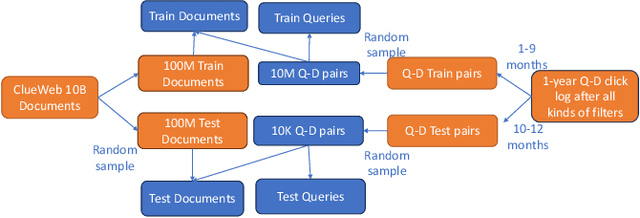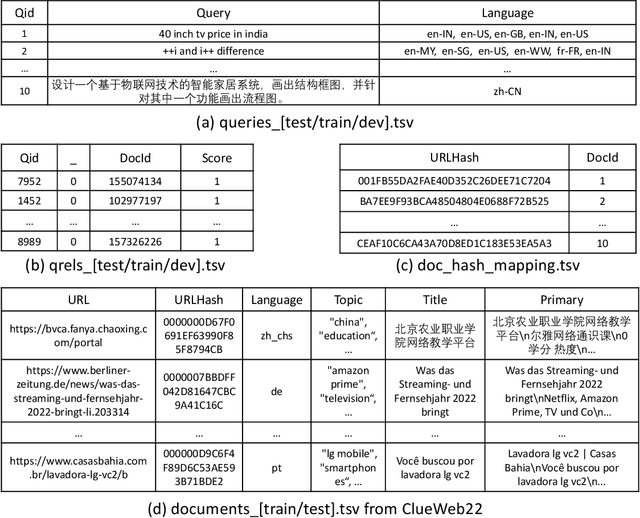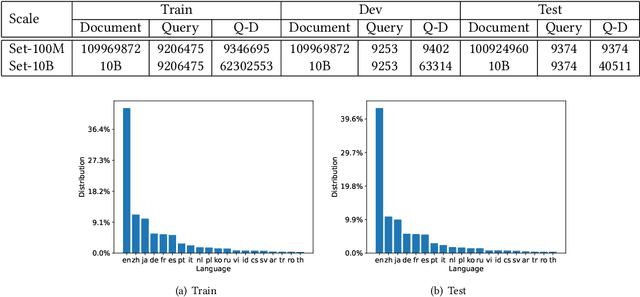Zengzhong Li
MS MARCO Web Search: a Large-scale Information-rich Web Dataset with Millions of Real Click Labels
May 13, 2024



Abstract:Recent breakthroughs in large models have highlighted the critical significance of data scale, labels and modals. In this paper, we introduce MS MARCO Web Search, the first large-scale information-rich web dataset, featuring millions of real clicked query-document labels. This dataset closely mimics real-world web document and query distribution, provides rich information for various kinds of downstream tasks and encourages research in various areas, such as generic end-to-end neural indexer models, generic embedding models, and next generation information access system with large language models. MS MARCO Web Search offers a retrieval benchmark with three web retrieval challenge tasks that demand innovations in both machine learning and information retrieval system research domains. As the first dataset that meets large, real and rich data requirements, MS MARCO Web Search paves the way for future advancements in AI and system research. MS MARCO Web Search dataset is available at: https://github.com/microsoft/MS-MARCO-Web-Search.
SPANN: Highly-efficient Billion-scale Approximate Nearest Neighbor Search
Nov 05, 2021



Abstract:The in-memory algorithms for approximate nearest neighbor search (ANNS) have achieved great success for fast high-recall search, but are extremely expensive when handling very large scale database. Thus, there is an increasing request for the hybrid ANNS solutions with small memory and inexpensive solid-state drive (SSD). In this paper, we present a simple but efficient memory-disk hybrid indexing and search system, named SPANN, that follows the inverted index methodology. It stores the centroid points of the posting lists in the memory and the large posting lists in the disk. We guarantee both disk-access efficiency (low latency) and high recall by effectively reducing the disk-access number and retrieving high-quality posting lists. In the index-building stage, we adopt a hierarchical balanced clustering algorithm to balance the length of posting lists and augment the posting list by adding the points in the closure of the corresponding clusters. In the search stage, we use a query-aware scheme to dynamically prune the access of unnecessary posting lists. Experiment results demonstrate that SPANN is 2$\times$ faster than the state-of-the-art ANNS solution DiskANN to reach the same recall quality $90\%$ with same memory cost in three billion-scale datasets. It can reach $90\%$ recall@1 and recall@10 in just around one millisecond with only 32GB memory cost. Code is available at: {\footnotesize\color{blue}{\url{https://github.com/microsoft/SPTAG}}}.
 Add to Chrome
Add to Chrome Add to Firefox
Add to Firefox Add to Edge
Add to Edge